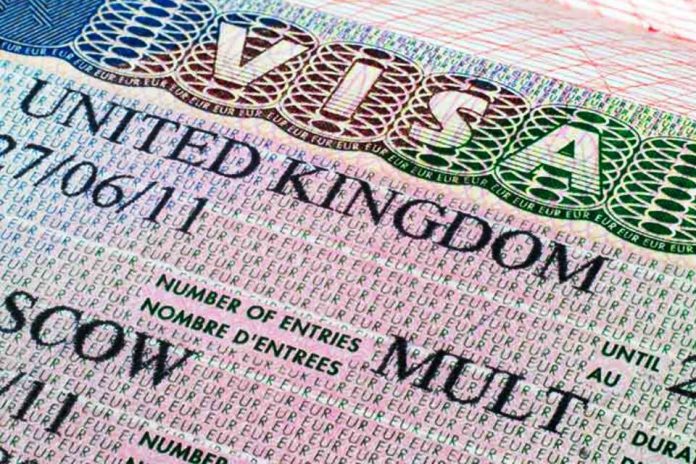Matt Salusbury introduces the new points-based system and explains what level of English immigrants need to get into the United Kingdom
A new points-based system is being touted by the UK Government as allowing the UK to “fulfil our commitment to the British public and take back control of our borders.”
But the new system, currently only necessary for non-EU citizens, is as baffling to the British public as it is to would-be immigrants.
Will EU-nationals need student visas, now that the UK is “Brexiting”? There is still no definitive answer on this yet.
For those who do need a visa, a total of 70 points will be needed to qualify, including 10 points for “speaks English at the required level”.
There’s a list of English-speaking countries whose nationals are exempt from the English language requirement. Already having a degree taught in English will in some cases be enough for an exemption from having to take an English test. If applicants had a previous UK visa and convert to another type of visa, they won’t need to take the English test again.
But everyone else will need to take a Secure English Language Test (SELT) from a Secure English Language Test Centre (for more on these see page 20).
To add chaos to confusion, the level of English needed varies for different “tiers” – types of visa – and for the sub-categories within each tier.
First, there’s the Tier 1 visa. This used to be known as the “Entrepreneur” visa, but according to Gov.uk the Entrepreneur category has been replaced with “Starter” and “Innovator” visas. Apart from the eye- watering amounts of money applicants need to be prepared to “invest” in the UK, this visa also requires a B2 on the Common European Framework of Reference (CEFR). Tier 1 also has a “Graduate Entrepreneur” category and and “Exceptional Talent” category for “exceptionally talented leaders” in specific fields.
Tier 2 used to be the “work permit” category. It’s for workers with a job offer from a UK company. Tier 2 categories include “General” (there’s a quota limiting how many of these visas are issued) and “Specialist” categories. The Specialist category includes “ministers of religion”, “sports and creative workers” and “Intra-Company Transfer”.
It’s surprisingly hard to find information on the government’s own website, into what the “required level” of English is. Drilling down into the Tier 2 policy guidance document reveals that for a Tier 2 “General” visa, applicants need a B1 in all four skills; while a “minister of religion” will need a B2 in all four skills; but a “sportsperson” will only need an A1 in speaking and listening.
Confusingly, a Tier 3 does not yet exist. This is planned as a category for seasonal, unskilled workers and is being kept in reserve.
Student visas come under Tier 4. For these, the level of English needed depends on what type of institution students are applying to. For degree courses in higher education institutions (generally universities), students do not need to take a SELT, and the universities themselves can set their own language requirements tailored to their needs. The university’s entry test, however, must be equivalent to CEFR B2.
Students applying to institutions that are not higher education, such as private further education colleges, need to reach a B1 CEFR if they’re taking a degree, or a B1 if it’s anything below degree level.
There’s also a Tier 4 child student visa for children going to boarding schools, for which no English test is needed. Applicants who have previously held a UK child student visa and are applying for an adult student visa are also exempt from an English test.
Students can take an English language course of up to 30 days on a Standard Visitor Visa (although it shouldn’t be the main reason for the stay.) They can also study on a language course on a Short-term Study Visa for between six and 11 months, with no language test needed, just an offer from the language school.
Last but not least are family visas. Partners, spouses and parents of UK nationals settling in the country only need a language test at CEFR A1 in speaking and listening. Most SELT providers have a variant of their test that just covers these two skills. Those wanting to stay on, though, will need to pass an A2 test within two and a half years.
© Matt Salusbury
Exams needed by tier
Tier 1
B2 on the CEFR
Tier 2
Generalist: B1 in all four skills Specialist: varies by category
Tier 4
Student visas: for degree courses in higher education institutions: no SELT needed, universities set requirements equivalent to CEFR B2.
For institutions other than higher education: B1 CEFR for a degree course, or B1 for below degree level. Child student visa: no test needed.
Family visa
Partners, spouses and parents of UK nationals: CEFR A1 in speaking and listening and an A2 test within two and a half years.





